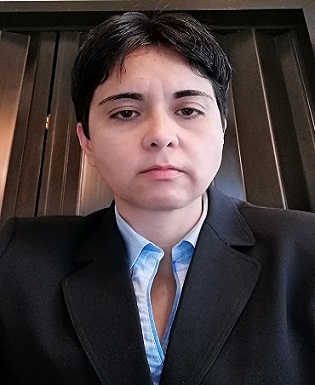Scientific Program

Alma Y. Alanis
University of Guadalajara, Mexico
Title: Adaptive Neural Actuator Fault Tolerant Control for Discrete-time Unknown Nonlinear Systems
Biography:
Alma Y. Alanis, received the Ph.D. degree in electrical engineering from the Advanced Studies and Research Center of the National Polytechnic Institute (CINVESTAV-IPN), Guadalajara Campus, Mexico, in 2007. Since 2008 she has been with University of Guadalajara, where she is currently a Chair Professor in the Department of Computer Science and since 2016 is dean of PhD Program of Electronic and Computer Sciences. She is also member of the Mexican National Research System (SNI-2) and member of the Mexican Academy of Sciences.
Abstract
Control systems constitute a fundamental stage in the development and implementation of new technologies and its advancements. As technology has advanced, so has systems’ complexity, in such a way that modern control systems must be capable of ensuring increasingly complex control objectives. Today, the systems to be controlled must not only consider their non-linearities, uncertainties and disturbances, which are phenomena already well studied; now it is also necessary to ensure their behavior under the presence of more challenging conditions such as those presented by faults, see M. T. Hamayun and Alwi (2016). Fault-tolerant control schemes are an important aspect in safety critical systems and seek to maintain overall system stability and acceptable performance in the face of faults and failures within the system as in M. T. Hamayun and Alwi (2016). There are different kind of classification about faults, in M. T. Hamayun and Alwi (2016) it is defined that faults can be classified as actuator fault, sensor fault or component fault, their location. In this talk, different fault profiles, associated with the actuators, are considered, faults at the component and sensor faults are not considered. Types of actuator can be classified as float failure, lock in place failure, hard over failure and loss of effectiveness; evidently there are faults that are easy to deal with them and there are hard fault that can be very destructive and they can cause irreversible damage to the system as in H. Alwi and Tan (2011). Therefore, increasing demands for safety, reliability and high system performance have motivated the need for fault-tolerant control and has stimulated research in this area. For the design of fault-tolerant controllers, many different design paradigms have been proposed in M. T. Hamayun and Alwi (2016).
- Microcontroller
- The Relevant Technology Applications of Mechatronics
- IOT (Internet Of Things)
- Robotics: New Approaches in Automation
- Autonomous Technology
- Machine Vision System
- Sensing and Control Systems
- Bio Mechatronics
- Opt Mechatronics
- Mechanical Engineering
- Electrical Engineering
- Nano Technology
- Mechatronics
- System Engineering

